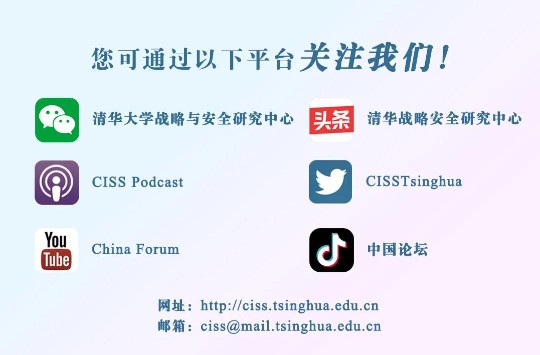编者按
2020年1月11日,清华大学战略与安全研究中心在第二届战略与安全国际论坛期间举办午餐讨论会,邀请清华大学法学院教授、国际治理研究院院长、港澳研究中心主任王振民围绕香港问题发表午餐演讲并同与会嘉宾进行交流。现将王振民教授演讲的中英文全文刊发如下:
香港——中国的世界经贸中心
王振民
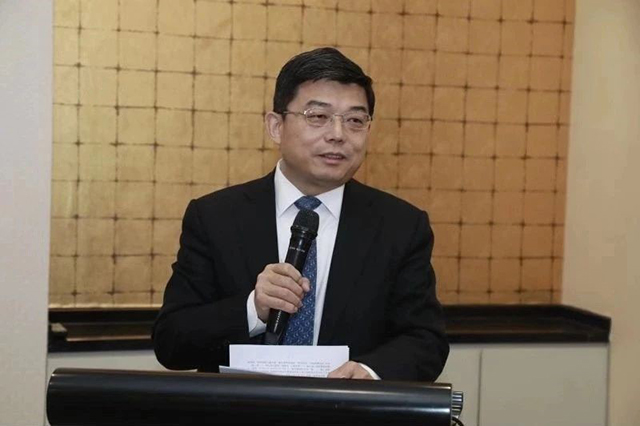
王振民教授
1. 香港何以从一个question变成一个problem
很荣幸有机会与各位中外朋友交流对香港问题的个人看法。多年来我一直从事宪法学的教学研究,特别是香港、澳门基本法和港澳问题研究。2015年我从清华大学法学院院长任上,借调到香港中联办担任法律部部长,2018年底结束工作返回北京。2019年6月以来香港局势大变,从大治到大乱,震惊全国乃至全球,大家熟悉的东方明珠不幸蒙尘,黯然失色!
大家知道中文“问题”一词英文有多种翻译,包括question, problem,issue等。过去我们讲香港“问题”时,英文多用question,但从去年开始英文媒体更多用problem来讨论香港“问题”。香港何以从一个question变成一个problem,又怎么解决这个problem呢?
的确,香港过去一直没有问题(problem),“一国两制”下的香港是中国和国际社会优秀的经济贸易伙伴,各方面表现都很好,各门功课都十分突出,尤其金融、经济、法律几门课在全世界一直名列前茅。所有人都喜欢香港,充满活力,人见人爱,西方朋友到香港一点都不陌生,中国内地人到香港也不陌生,都觉得香港像家一样亲切,真是宾至如归。本来1997年中国收回香港,完全有权实施“一国一制”,把香港变成中国一个普通城市。但是,中国通过“一国两制”和香港基本法维持了香港国际经济贸易中心地位不变。回归20多年来,香港仍然是“中国的世界经贸中心”,不仅有利于中国,有利于香港,而且有利于包括美国、英国在内的世界各国。2019年香港出了状况,要解决香港今天面临的问题(problem),需要所有持份者共同努力。
2.“一国两制”方针政策
今天有很多外国朋友,我还是花点时间先简单介绍一下中国的“一国两制”方针政策。
我想从中国统一的历史谈起。公元前221年中国第一个封建皇帝秦始皇通过一场场战争消灭了当时在这块土地上存在的其他六个较大的国家,实现了中国历史上第一次真正的“大一统”,建立起强大有力的中央政权。假设当年秦始皇不是通过武力,而是通过和平谈判与其他六国实现统一,也许当时就出现一个United States of China。正因为一开始就是武力统一,中国后来历朝历代的统一基本上是通过战争实现的,“武力统一,一国一制”就成为中国历史的常态,2200多年概莫例外。在此,我们可以比较下美国是如何实现“统一”的。在1787年那个炎热的夏季,北美大陆13个新独立的国家(state)在费城通过和平谈判,“谈”成了一个新的国家the United States of America,实现了美国的“统一”。要注意美国实现的是United,而不是Unified,这与中国的“统一”模式(unification)非常不同。
很多时候,美国朋友看不懂、看不惯中国的制度,例如单一制国家结构,批评我们“搞错”了,不应该这样,不应该那样!我不得不告诉美国朋友,如果说我们“搞错”了,非常抱歉我们不是今天才“搞错”的,也不是“搞错”一年两年、十年二十年、一百年二百年,而是“搞错”了2200多年!但必须知道,美国才200多年历史,中国大一统的历史都超过了2200年,到底是我们“搞错”了,还是你们搞错了?在还没有美国的那2000多年,中国、中国人又是怎样度过、如何处理类似问题的?
言归正传。1979年港督麦理浩访问北京,试图了解中国政府准备如何解决香港问题。邓小平先生之后创造性地提出了“和平统一,一国两制”的伟大构想,其中心思想包括:
(1)中国寻求与英国通过和平谈判而不是战争解决香港问题;
(2)1997年中国恢复对香港行使主权,中央负责外交、国防,基本法的制定、修改、解释,香港立法的备案审查权,行政长官和主要官员的任命,政制改革的决定等;
(3)香港成为中国的一个特别行政区,实行“港人治港”,高度自治,享有行政管理权、立法权和独立的司法权包括终审权,维持自由港、独立关税区和独立货币区地位,保持资本主义制度和社会方式50年不变。另外,中央与特区要共同维护国家安全。
(4)中国关于“一国两制”的各项承诺、中央与香港特别行政区之间的职责权限划分由一部宪制性法律——香港基本法加以明确。1990年中国最高权力机关——全国人大通过了这部法律,“一国两制”完成了法律化、制度化,1997年7月1日开始实施。
这就是“一国两制”的基本内容。相比实行2000多年的“一国一制”,这无疑是巨大的历史进步。
3. 香港“一国两制”的成功实践
香港回归中国20多年,“一国两制”成功实践,成绩有目共睹。主要体现在:
(1)“一国两制”下中国政府对香港既不是什么都管,也不是什么都不管。什么事情中央要管、什么事情中央不管,这要看法律,即宪法和基本法。香港回归中国20多年来,中国行使对香港的主权(全面管治权),严格履行承诺,按照宪法和香港基本法履行自己的职责,不干预依法属于香港高度自治的事情,香港国际国内地位都有很大提升。
(2)香港连续25年被美国传统基金会评为全球最自由的经济体(美国排名第18位),继续发挥国际贸易中心、金融中心、航空中心、航运中心功能,为中国、区域和世界经济社会发展作出重大贡献。香港仍然是著名的自由港,是世界三大金融中心之一、全球第三大股票市场、第三大外国直接投资(FDI)接受地、第八大贸易体(超过新加坡和台湾),外汇储备全球名列前五名,香港机场货运量全球第一,客运量全球前十名,GDP总量全球第35位,人均全球第16位。香港人均寿命全球第一,男性81.3岁,女性高达87.3岁。
(3)香港人权、自由得到充分发展和保护,其人类自由指数全球名列前茅,根据加拿大独立机构弗雷泽研究所(Fraser Institute)公布的2018年人类自由指数排名,香港位居全球第3名,远远超过排名第17的美国。香港回归中国之前每年集会游行示威大概有3000起左右,近十年来每年都超过10000起。根据美国国务院《2019全球投资环境报告》,“香港在政治上是稳定的,示威几乎总是和平的”。
(4)根据世界银行公布的全球治理指标,香港法治得分由1996年的69分提高到2017年的94高分。根据美国“世界正义工程”公布的世界法治指数排名,2018年和2019年香港法治在全球排名第16位,美国则是第20名。根据有关国际机构评估,香港司法独立指数更是亚洲第一,全球前十名。
香港是全球犯罪率最低的几个地方之一,正常年份每10万人犯罪人数只有约700多人,每年谋杀案只有几十起,差不多同等规模的国际大都会例如伦敦有100多起,纽约2019年有311起。
(5)中国政府积极推动香港民主发展,尽管2015年香港反对党捆绑否决了政府的普选方案,但回归后香港比回归前更加民主,这也是公认的事实。
总之,尽管“一国两制”实施中还存在这样那样的问题,但只要不带任何偏见,可以看出“一国两制”在香港的实践取得了很好成绩。英国、美国政府过去多年也持同样的看法。
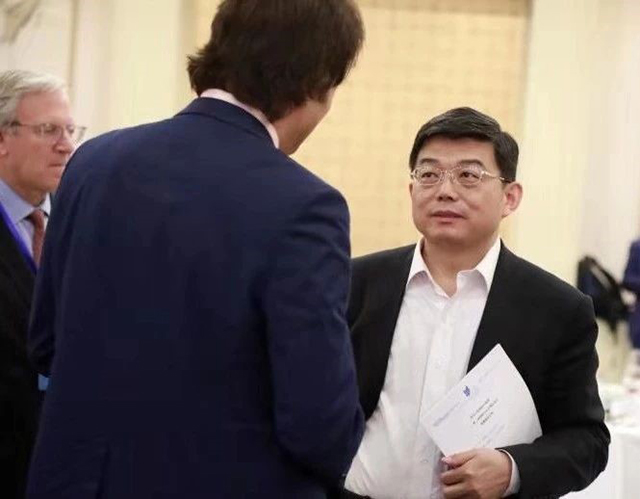
4. 中国是香港“一国两制”成功实践的受益者
毫无疑问,中国从香港“一国两制”成功实践当中获得了巨大利益。我们与英国和平谈判解决香港问题,不动一刀一枪收回了失去的领土。40多年来,香港为中国提供了超过一多半的境外投资,香港是人民币国际化重要的离岸交易中心,香港市场经济、法治和管理经验为中国相关改革提供了有益的借鉴,为中国特色社会主义制度的形成和完善、为全国的改革开放和现代化建设作出了独特的贡献。当然还有巨大的捐赠,很多大学的很多大楼都是香港人士捐赠的,包括我们法学教育的很多进步都得益于香港的经验。香港的很多功能、地位是中国内地任何城市短期内所无法代替的。
5. 美国和全世界也是香港“一国两制”成功实践的受益者
香港既是中国的“世界中心”,是中国内地走向世界的重要门户,也是世界的“中国中心”,是世界进入中国腹地的重要通道。中国内地人到香港,很多时候最终目的地是走向世界,西方人到香港最终目的地往往也不是香港,而是中国内地,是为了与中国内地做生意。长期以来,香港就是中西交往交流交易的战略要道和重要平台。离开中国腹地,香港将是无源之水,无本之木;离开世界网络,香港将失去独特优势和特殊功能。把中国腹地和外面世界连接好,服务好,是香港发展源源不断的活水之源和生命所系。
我们非常愿意在“一国两制”制度框架下,与世界各国共建共享香港这个独特的国际经贸平台,愿意与各国分享这里巨大的商机和利益。香港“一国两制”20多年的实践,真切演绎了这种双赢、多赢成功的故事。香港和中国内地得益于香港“一国两制”的成功实践,美国和全世界各国也都从香港“一国两制”成功实践中获得巨大利益。
以美国为例,2019年7月美国国务院发布《2019年全球投资环境报告(2019 Investment Climate Statements)》,称赞“香港仍然是美国投资和贸易绝佳目的地。尽管香港人口不足800万,但它是美国第十大出口市场、第七大农产品出口市场、第五大高价值消费品和饮料出口市场。香港拥有世界一流的金融机构和监管体系,其经济基础是具有竞争力的金融和专业服务、贸易、物流和旅游。2018年,香港近3650亿美元的GDP中,服务业占90%以上。香港拥有大量的地区总部和区域办事处。1400多家美国公司设在香港,其中一半以上是区域性公司。金融和相关服务公司,如银行、律师事务所和会计师事务所,占据了主导地位。全球最大的100家银行中,有70家在这里开展业务。”
在港运营的约1400家美国公司中,其中283个是地区总部,443个是地区办公室,香港美资企业总部数仅次于中资企业。2018年有3955家海外公司在香港注册区域业务,美国拥有最多的724个,香港非本地初创企业创办人约16%来自美国。
中国目前是126个国家和地区的最大贸易伙伴,美国是56个国家和地区的最大贸易伙伴。很多人不知道,在美国所有贸易伙伴中,自2009年以来,香港一直是美国最大的贸易顺差来源地,累计总额达2970亿美元,超过美国所有贸易伙伴。
美国有8.5万公民在香港定居、工作生活,是香港最大的外国人社群。每年约有120万美国游客到访香港。(上述部分数据来自香港《大公报》,2019年9月28日“美国若制裁香港损失巨大”)
可见,中国内地利用香港这个经贸平台做生意,是最大用户,美国也在利用香港国际经贸平台做生意,是第二大用户。
必须指出的是,20多年来美国之所以能够在香港继续获得如此重大的商业和各种利益,有赖于“一国两制”的成功实践,美国是中国之外“一国两制”最大的受益者。假设中国在香港实施“一国一制”,美国在港商业和各种利益要么大打折扣,要么根本消失。包括香港在内整个中国固然是“一国两制”的受益者,美国和全世界同样是“一国两制”极大的受益者。
6. 到底谁搞乱了香港
我们从不隐瞒中国在香港有巨大的利益,香港的稳定繁荣符合中国国家利益。因此,中国绝对不会破坏“一国两制”,故意搞乱香港,也不会打压港人的自由,压缩香港的高度自治和民主,那根本不符合中国的国家利益。如果说是中国政府把香港搞乱了,这不符合事实,不符合常识和逻辑。多年来,中国还没有搞乱过任何其他国家,怎么会搞乱自己的香港呢?但是,现在香港确实乱了,乱得很严重,很离谱,损失很大。香港之乱,也绝非无缘无故、自己乱起来的,肯定有“大台”支持。那会是谁呢?很抱歉,大家很自然想到美国!大家想想,这世界上有多少乱局是美国“贡献”的?香港会是例外吗?美国朋友也许不承认,其实我们也不愿意相信,既然美国在香港有那么大的利益,为什么要搞乱香港呢?确实匪夷所思。但还是让事实说话吧:
全世界人民都看到2019年美国在香港事务上比任何一个国家包括中国都忙碌,美方高层不断表态支持香港“民主”运动,时不时接见香港反对派代表人物,不断释放错误信号,直接间接鼓励了暴力的蔓延升级。美方一些说法根本就是事实性错误,比如有位资深政治人物说中国没有履行承诺给香港“完全自治(full autonomy)”。这缺乏基本常识,因为无论是1984年的《中英联合声明》或者1990年的《香港基本法》,从来都没有说过要给香港“完全自治”,从来都是“高度自治”。一些人既然那么热心干预中国香港的事务,那就应该认真研究学习下中国香港的历史,学习下《香港基本法》。
美国官方和媒体不断污蔑香港警察过分使用武力。面对前所未有、“宣战式”的暴力,香港警察已经非常克制,可以说是世界上最克制、最专业的警察,7个多月的乱局,1000多场暴力冲突,香港警察没有开枪打死一个人,护卫香港这个国际大都会屹立不倒!美国警察能做到吗?到底香港警察还是或者美国警察过分使用武力?根据美国执法者纪念基金(National Law Enforcement Memorial Fund)刚刚公布的数字,2019年美国警察全年直接击毙897人之多,其中18岁以下的未成年人就有12位。去年美国还有3.9万多平民死于各种枪击事件,其中不少是学生!
中国治理香港名正言顺,但三十多年来才通过一部宪制性法律——《香港基本法》和为数不多列入《基本法》附件三的全国性法律在香港适用。大家想想美国为香港制定了几部法律?我知道的就有三部,除了1992年《香港政策法案》,去年美国一口气通过两部法律,似乎直接把香港当成自己的一个州来管了!2019年美国《香港人权与民主法案》制定的依据到底是什么?了解香港真实情况吗?这部法律有很多事实性错误,很不严肃。
这些仅仅是部分事实。当然绝不是说香港之乱完全是美国所为,责任都在美国,其发生的原因当然十分复杂,但美国以各种形式高调、深度介入干预、浑水摸鱼、火上浇油也是不争事实。
我曾经问美国朋友,美国是否干预太多,太过分了?他们觉得很冤枉,说美国不可能支持香港暴乱,更不可能出钱,因为特朗普总统非常忙,也非常吝啬,美国国内很多事情需要花钱,他都不给,怎么会花钱支持香港暴乱呢?的确,这样做,美国确实不仅得不到任何好处,反而会损害自己的利益。但也有美国朋友讲,这些年美国做了很多损人不利己的事情,明知对自己也不好,但还要做!
我特别注意到,香港美国商会主席葛理福(Robert Grieves)先生去年9月接受记者采访称,“试想一下没有香港的世界,亚洲和全球的商业活动将如何运作?”他说,香港是商业的天堂,地位不容动摇(新加坡《联合早报》2019年9月23日)。7个多月来,美国在港商业利益、8.5万在港美国公民也深受香港暴乱之害,没有任何人能够从香港暴乱长期化、持久化中得到任何好处。
迄今为止中国政府非常克制,没有做任何事情,就令美国一些人大为光火,他们的火来自哪里?似乎无论美国对香港做什么都行,怎么干预中国内政都很“正当”,都振振有词。但只要中国政府做一点事情,或者即便什么都不做,美国仍然不问青红皂白,指责中国“干预”香港高度自治!这正常吗?人们要问,香港到底属于美国还是中国?美国在香港的声音好像比中国还大,比我们还忙,干预力度比中国大多了!况且,中国政府依照宪法和基本法正常履行对香港的职责,那不是“干预”,是合法的,是“一国两制”允许的,而美国的干预没有任何国际法基础。
这世界已经很乱了,人类真的不需要更多的混乱,需要的是更多的秩序、法治和进步。尤其不应该把原本治理非常好的地方例如香港搞乱,乱成那个样子。我们都非常痛心、惋惜!那不仅侵犯他国主权,干预别国内政,而且最终损人不利己,自己的利益也必将受到伤害。
7. 所有持份者都有责任共同维护“一国两制”大局
我总结一下上述发言:
第一,就像人与人之间一样,国与国之间也应该有起码的尊重,我们讲“人权”,人权当然很重要,也要讲“国权”,也就是一个主权国家、一个民族应该享有的基本尊严和权利。我们非常尊重伟大的美利坚合众国,感谢你们多年来为世界和平、人类进步做出的杰出贡献,中国人民一直以感激之情认真对待美国和美国人民,对待我们的友谊。我们也希望美国尊重中国和其他弱小国家的基本“国权”。大家都在一个地球村生活,都有与生俱来的基本权利,我们无法选择自己的家园和邻居,大家只能和平相处,相互尊重,保护好我们的共同家园,地球经不起折腾了!这就是习近平主席提出的“人类命运共同体”的含义。
第二,香港是中国的,但香港的国际经贸平台是大家共用的,机会也是大家的。现在有人要拆台,要把这个台子推翻。如果得逞,中国损失当然最大,美国又能得到什么好处呢?既然在香港问题上中美两国和全世界都得益于“一国两制”的成功实践,大家就有责任共同维护好“一国两制”大局,共同维护这个国际经贸平台的安全。最起码不能再对一些人发出错误信号,大家共同对任何暴力行为说不,让香港不再成为一个problem,尽快恢复香港法治,恢复国际经贸平台正常功能,恢复“明珠”、“天堂”面貌。大家都应多做积极的、建设性的事情,少做、不做负面的、破坏性的事情。其实,很多在香港的美国、英国以及其他国家居民已经坚决站出来,旗帜鲜明反对暴力。毕竟尽快止暴制乱、恢复秩序是大家共同的心声,也是大家共同利益所在,需要大家共同努力。
即便经历如此重大变故,中国政府一再重申将继续坚持“一国两制”方针不动摇,继续严格按照宪法和基本法办事,我们对“一国两制”的决心和信心没有任何改变。我们愿意与美国、与世界各国继续共同使用好香港平台,分享巨大商机,继续与美国和各国在香港开展经贸交流合作,续演“一国两制”双赢、多赢成功的故事。
西历新年刚过,农历中国新年就要来了。过去一年,大家在香港事情上都很忙,希望新的一年不再繁忙,让香港早日安静下来,恢复过去的美好时光;大家共同努力,也让世界喘一口气,稍微安静些,想想我们面临的共同挑战和共同的未来,以实际行动做一个充满正能量的世界公民。
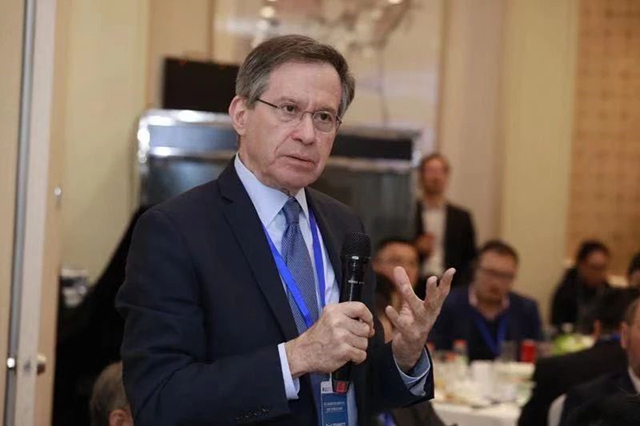
| 葛维宝 (Paul GEWIRTZ)
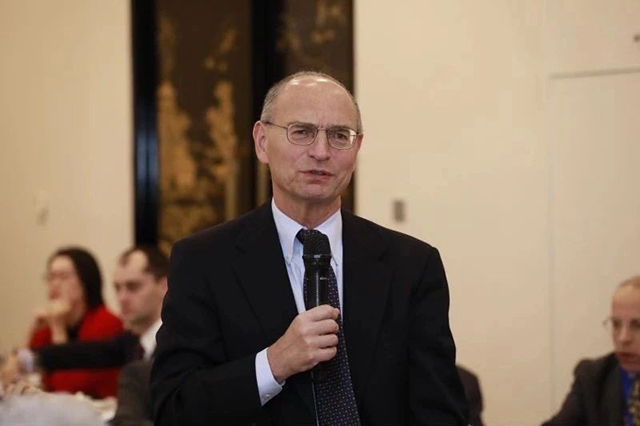
| 克利夫·库普坎(Cliff KUPCHAN)
Hong Kong: China’s World Economic Hub
Professor Wang Zhenmin
Tsinghua University, Beijing, China
January 11th, 2020
I am honored to speak here today on the topic of Hong Kong. In 2015, when I was still the Dean of Tsinghua University Law School, I was invited by the Central People’s Government Hong Kong Liaison Office to take up the position as the head of its Legal Department, i.e. the chief counsel. I returned to Tsinghua and resumed my teaching and research responsibilities in the end of 2018 upon completion of my work. However the circumstances in Hong Kong have completely changed in 2019, shocking to many observers in China and of the world, and the familiar Hong Kong has all but vanished. The majority of my time is still devoted to observing and researching on Hong Kong and related international questions.
You perhaps know the Chinese word “问题(Wen Ti)” has many corresponding English translations such as question, problem, issue, and so on. When we talked about Hong Kong’s Wen Ti in the past, we often referred to the English word “question”. However, since last year, the English language media has more of often than not described Hong Kong’s Wen Ti as “problem”. How did Hong Kong’s “question” become a “problem”? And how do we solve this problem?
Indeed, Hong Kong had never encountered such problems; in fact, under “One Country, Two Systems”, Hong Kong always strived for excellence and remained excellent as witnessed by China and the international community, especially in the fields of financial, economic and rule of law developments. Everybody loves Hong Kong, and when our Western friends and friends from Chinese Mainland visit Hong Kong, they all told us that they feel like home. Hong Kong is a part of China, but she is also an international economic and trade platform, made possible by “One Country, Two Systems” policy and the Hong Kong Basic Law, created by China but for the World. She is indeed China’s World Economic Hub.
1. China’s “One Country Two Systems” Policy
I want to spend some time to briefly introduce the policy of “One Country, Two Systems”. In 221 B.C., China achieved unification for the first time under the State of Qin, the first powerful central authorities in China’s feudal history. For the next 2200 or so years, the unification of China’s dynasties was mostly achieved through war under the structure of “One Country, One System”. You would all be familiar with that hot summer of 1787, when 13 new independent states in the North American continent formed a new country, the United States of America, in Philadelphia through peaceful negotiations, not war. The US was “united”, but not “unified”. This was the first and only time the US achieved American style “unification”. I always imagine, if over 2200 years ago, China’s first emperor Qin Shihuang unified China through negotiation and not annihilation of the other six states, there could perhaps be a “United States of China”. However, unlike the early US history, China always upheld a policy of “unification through war, one country one system” for 2200 years without much exception. Our friends in the U.S. often do not understand and cannot relate with China’s political arrangements, such as our unitary structure, by criticizing that we are mistaken and should not centralize powers. I will have to tell my friends from the U.S.: if we were wrong, I am sorry to tell you that we are not wrong today and have not been wrong for one or two years, for a decade or two, or even for one or two hundred years. We have been “wrong” for over 2200 years! But what you have to know is that, the U.S. only has a history of over 200 years, whereas our history of “great unification” have been in existence for over 2200 years. So are we wrong, or are you wrong?
I shall stop digressing. In 1979, Governor MacLehose of Hong Kong visited Beijing to learn how the Chinese government plans to solve the Hong Kong question. Afterwards, Mr. Deng Xiaoping creatively put forward the great idea of “peaceful unification, One Country, Two Systems”, including the following central components: China seeks to solve the Hong Kong question through negotiations and not war with the UK; in 1997, China would resume exercising sovereignty over Hong Kong, and the Central Government of China would be responsible for foreign affairs, national defense, the making, amendment and interpretation of the Hong Kong Basic Law, the appointment of the Chief Executive and principal officials, as well as the power of legislative record and review of Hong Kong legislation; Hong Kong would become a Special Administration Region of China, exercising “Hong Kong people ruling Hong Kong” with a high degree of autonomy, enjoying administrative power, legislative power, and independent judicial power including that of final adjudication, while maintaining the capitalist system and way of life, and at the same time enjoying status such as being a free port, independent customs area, and independent currency area and so on, for 50 years unchanged. The promises by China on the “One Country Two Systems” as well as the division of duties and powers between the Central Government and the Hong Kong SAR Government were all finalized by a law with constitutional law status——the Hong Kong Basic Law. In 1990, China’s highest legislative body, the National People’s Congress passed this law, and “One Country, Two Systems” was legalized and institutionalized. The Basic Law was implemented since July 1st, 1997.
2. The successful practice of the “One Country Two Systems” policy
Under the “One Country Two Systems” principle, the Chinese government governs neither everything nor nothing of Hong Kong. The decision whether the central authorities governs or not shall comply with the law, that is, the Chinese Constitution and the Hong Kong Basic Law. Over the past 20 years since Hong Kong’s return to China, the Chinese government has fulfilled its political commitments, performed its duties in strict accordance with the Chinese Constitution and the Hong Kong Basic Law, and refrained from interfering in matters that are legally subject to Hong Kong’s high degree of autonomy. The international and domestic status of Hong Kong has greatly improved. We all witnessed the great success of the practice of “One Country Two Systems” in Hong Kong.
For 25 consecutive years, Hong Kong has been rated as the freest economy in the world by the American Heritage Foundation, while the United States ranked 18th. It continues to play the international roles of a economic hub and trade center, a financial center, an aviation center and a shipping center, making significant contributions to the economic and social development of China, the region and the world. Hong Kong remains a world-renowned free port, one of the three largest international financial centers, the third largest stock market, and the eighth trading entity, and it ranks the top five in foreign exchange reserves, the first in airport freight volume, the top ten in passenger volume, and the 35th in GDP in the world.
Human rights and freedoms are fully developed and protected in Hong Kong. According to the Human Freedom Index 2018 released by the Fraser Institute, a Canadian independent research institute, Hong Kong ranked 3rd in the world, far ahead of the United States, which ranked 17th. Before Hong Kong’s return to China, there were about 3000 demonstrations per year, and in the past decade more than 10,000 per year. Quoting The “2019 Investment Climate Statements” released by the U.S. Department of State, “Hong Kong is politically stable, with demonstrations almost always peaceful.”
Hong Kong has one of the lowest crime rates in the world. There are only about 700 crimes per 100,000 people. Normally, for example, there were only 25 murders in Hong Kong in 2017, compared with 290 in New York and 116 in London. According to the evaluation of the World Justice Project and the World Economic Forum and other international institutions, the rule of law of Hong Kong ranked 69th in the world in 1996, and jumped to 16th in 2018.
China has been very serious to develop democracy in Hong Kong according the Basic Law. Although in 2015 Hong Kong’s opposition factions rejected the government’s universal suffrage plan, it is a widely recognized fact that Hong Kong is much more democratic after its return than before.
In short, as long as we are free from prejudice, we are able to conclude that “One Country, Two Systems” implemented by the Chinese government in Hong Kong has made great success.
3. China benefits greatly from “One Country Two Systems” in Hong Kong.
Undoubtedly, China benefited greatly from “One Country Two Systems” in Hong Kong. We successfully solved the question of Hong Kong through peaceful negotiations with the British government, and regained the lost territory without war. Over 40 years, Hong Kong has contributed more than 60% of China’s overseas investment, and it has been one of the most important off shore clearing center for the RMB internationalization. The Hong Kong’s experience of market economy, the rule of law and good governance has provided valuable reference on relevant reforms inmainland China. It has made unique contributions to the formation and improvement of the Chinese style socialist system and to the reform, opening-up and modernization of the whole country. Of course, it should not be forgotten there are also huge and generous donations. Tsinghua University has dozens of buildings donated by our friends in Hong Kong. The development of Tsinghua Law School has also been benefited from Hong Kong friends’ contributions.
4. The US and the world also benefited greatly from “One Country, Two Systems” in Hong Kong
Not only Hong Kong and mainland China have benefited from the successful practice of “One Country, Two Systems”, but the United States and the world have also benefited greatly from “One Country, Two Systems” in Hong Kong. Hong Kong is not only China’s “World Center”, which means an important gateway for China to the world, but also Hong Kong is the “China Center” of the world. It is an important channel for the world to China. It has always been a strategic route and a key platform for contacts, communications and transactions between China and the West. The essence of “One Country, Two Systems” aims to maintain the status quo under “one country,” under which all other countries’ interests including strategic interests should have been maintained.
Take the United States for example. The “2019 Investment Climate Statements,” released by the U.S. Department of Statein July 2019, highly praised that “Hong Kong remains an excellent destination for U.S. investment and trade. Despite a population of less than eight million, Hong Kong is America’s tenth-largest export market, seventh-largest for totalagricultural products, and fifth-largest for high-value consumer food and beverage products. Hong Kong’s economy, with world-class institutions and regulatory systems, is based on competitive financial and professional services, trading, logistics, and tourism…Hong Kong hosts a large number of regional headquarters and regional offices. More than 1,400 U.S. companies are based in Hong Kong, with more than half regional in scope…Seventy of the world’s 100 largest banks have operations here.” In addition, according to “World Investment Report 2018” released by United Nations Conference on Trade and Development (UNCTAD), Hong Kong was the third largest foreign direct investment(FDI) recipient in the world. In 2018, according to HKG statistics, 3,955 overseas companies had regional operations registered in Hong Kong. The United States has the largest number with 724. The report also highly praised the rule of law in Hong Kong.
China now is the largest trading partner of 124 countries and regions, while the United States is the largest trading partner of 56 countries of regions. Many people don’t know that Hong Kong has been the largest source of the United States’ trade surplus over years, surpassing all countries and regions among its all trading partners. It is thus clear that the United States has tremendous interests in Hong Kong.
It must be pointed out that the successful practice of “One Country, Two Systems” is the reason why the United States has been able to continue to obtain such significant commercial and various interests in Hong Kong since its return to China in 1997. If it is “One Country, One System”, the business and various interests of the United States in Hong Kong will either completely disappear or be enormously reduced. China, including Hong Kong, is certainly the biggest beneficiary of “One Country, Two Systems”, but the United States and the world are also the prime beneficiaries of “One Country, Two Systems”.
5. Who created chaos and troubles in HongKong?
We never deny that China has huge interestin Hong Kong, and the stability and prosperity of Hong Kong is in China’s national interest. Therefore, China will never undermine the principle of “One Country, Two Systems” and deliberately destabilize Hong Kong; nor will China suppress the freedom of Hong Kong people or reduce the high degree of autonomy and democracy in Hong Kong, because these are not in China’s national interestat all. From my own observation in Hong Kong, the Chinese government has been earnestly fulfilling its commitments and carefully safeguarding the “One Country, Two Systems” in Hong Kong.
But now Hong Kong is really in terrible chaos, which has already caused a huge loss. It is not in line with the facts and common sense to say that it is the Chinese government who has messed up Hong Kong. Over the years, China has not messed up any other countries, so why should she mess up its own Hong Kong? However, the chaos in Hong Kong is by no means caused by itself. There must be a “big stage” in Cantonese (people who organized and supported all of these). Who could it be? I am sorry to say that people naturally think of the USA. Let’s think about it, how much chaos in the world is “contributed” by the US? What chaos has China created? People all over the world see that the US is busier in Hong Kong affairs than any other countries including China. Many senior US officials have been meeting with representatives of the opposition from Hong Kong and vilifying the Hong Kong police constantly. Is it the Hong Kong police or the U.S. Police who use more force? Hong Kong police are really the most restrained police in the world. After more than seven months of chaos and more than 1000 violent clashes, the police have not shot and killed a single person. Can America do that? I have a number here. In 2015 alone, American police shot and killed 965 people.
The United States has passed two laws/Actsin one breath, and seems to be taking Hong Kong as its own state. It took China several decades to pass a basic law and a small number of laws to apply in Hong Kong. How many laws/Acts did America enact for Hong Kong? At least THREE. On what basis did America enact Hong Kong Human Rights and Democracy Act? The law has many factual errors and is not serious at all.
I once asked some of my American friends if the United States interfered too much in Hong Kong affairs? They feel very wronged and say that America cannot afford it because President Trump is very stingy. How can he spend money to support the Hong Kong riot when he does not pay for many things in the United States? INDEED, by doing so, the United States gains nothing and harms its own interests. As some American friends said, the United States has done a lot of things which caused great harm to others but no good to herself.
So far, the Central Government of China has been very restrained, but this is still condemned by the United States. Where is the anger coming from? What is puzzling is that the United States will do whatever it wants with Hong Kong, and any American interference in China’s internal affairs seems to be justified. But, as long as the Chinese government does something, or even if it does nothing, the US will not hesitate to accuse China’s “interference” in Hong Kong’s high degree of autonomy. Is this normal? This makes people wonder whether Hong Kong belongs to the US or to China. Because the voice of the United States in Hong Kong seems to be bigger than that of China, and the US is much busier and even much more prepared than China in Hong Kong affairs.
The Chinese government naturally and normally performs its duties to Hong Kong in accordance with its Constitution and the Hong Kong Basic Law. That is not “interference” at all. It is legal and permitted by “One Country, Two Systems”. By contrast, the US intervention has no legal basis at all. Some of the US claims and statements are even factually false. For example, a senior US politician once said that China had failed to deliver on its promise of “full autonomy” to Hong Kong. This is a lack of common sense and basic knowledge, because neither the Sino-British Joint Declaration of 1984 nor the Hong Kong Basic Law of 1990 ever mentioned “full autonomy” for Hong Kong, but “a high degree of autonomy”. If some people are so keen to interfere in the affairs of Hong Kong, they should at least learn the history and the Basic Law of Hong Kong first.
6. All stakeholders have the responsibility to jointly maintain the “one country, two systems” framework
I would like to summarize my remarks to conclude my speech. First, just like between people, there should be at least some respect between countries as well. We talk about “human rights”. That’s absolutely important. But we should not forget the rights enjoyed by a sovereign state. This means the dignity and fundamental rights that a sovereign state should enjoy shall be respected by other states.
We have great respect for the great United States of America and thanks for your outstanding contributions to the world peace and human progress. The Chinese people have always treated the United States and the American people with gratitude and have always learned from you. We also hope that the United States will respect the basic rights of China as a sovereign state and other small or relatively weak countries. You are so strong and powerful that other countries are not without opinions, but can only swallow their voices and pride. Imagine if the United States were a person, how disgusting is what that person is doing at present? We all live in a global village. We cannot choose our own homes and neighbors. We can only live in peace, respect each other and protect our common homeland. The earth cannot afford to be tossed around anymore. This is the meaning of the“Community with a shared future for mankind” proposed by President Xi Jinping.
Second, Hong Kong is China’s Hong Kong, but the Hong Kong economic and trade platform are shared by all. Now someone is going to tear this table down. China of course will lose the most, but what good does America get? I have noticed in particular that Mr. Robert Grieves, the Chairman of the American Chamber of Commerce in Hong Kong, once said in aninterview with reporters in last September that “Imagine a world without Hong Kong, how then would business work in Asia and around the world?” He regards Hong Kong as a paradise for business and said that its position is unshakable. For more than seven months, the commercial interests and other interests of the United States in Hong Kong, over 80000 US citizens in Hong Kong have also suffered from the riots. No one can benefit from the long-lasting violence and riots in Hong Kong. We are willing to continue to work with the United States and other countries to make good use of Hong Kong as a business platform, share the great business opportunities there, and continue our exchanges and cooperation there.
Even such big changes took place in Hong Kong in 2019, China will continue to practice the “One Country Two Systems” policy and implement the Hong Kong Basic Law. Since China, the United States and the world have all benefited from “One Country, Two Systems”, and “One Country, Two Systems” is the greatest common denominator of all stakeholders, we all have the responsibility to jointly maintain the “One Country, Two Systems”, safeguard the security of this economic platform, and do more positive, constructive things.
Just after the western New Year, and the Chinese New Year is coming. Over the past year, we have been very busy with Hong Kong affairs. I hope that the New Year will be less busy, so that Hong Kong can calm down as soon as possible and return to the good old days. Let’s work together to give the world a break. Let’s be a little quiet, think about our common future and be positive citizens of the world.
